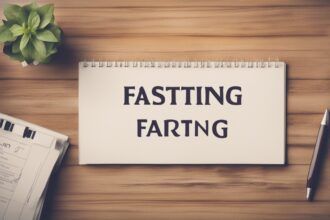Hey there, fasting enthusiasts! If you’ve been curious about the science behind fasting and how it can transform your health, you’re in the right place. Fasting—whether it’s intermittent fasting, water fasting, or time-restricted eating—has taken the wellness world by storm. But beyond the hype, what do fasting clinical trials tell us? In this deep dive, we’ll explore the latest research, share actionable fasting tips, and break down how these studies can guide your fasting journey. Let’s uncover the evidence behind fasting’s benefits and see how you can apply it safely and effectively.
The Rise of Fasting: Why Clinical Trials Matter
Fasting isn’t just a trend; it’s a practice rooted in centuries of cultural and religious traditions. Today, it’s being studied rigorously in clinical settings to understand its impact on metabolism, weight loss, and even disease prevention. Clinical trials are the gold standard for testing health interventions, offering controlled environments to measure fasting’s effects on the body. These studies help separate fact from fiction, ensuring that the fasting tips we follow are backed by data, not just anecdotes. For instance, research has shown that intermittent fasting can improve insulin sensitivity, a key factor in managing diabetes (Barnard et al., 2019). As we dive into specific findings, you’ll see why science is so crucial for safe fasting practices.
Key Findings from Fasting Clinical Trials
Let’s get into the meat of what fasting clinical trials have revealed. One of the most exciting areas of research is fasting’s impact on metabolic health. Studies have demonstrated that intermittent fasting (like the 16:8 method, where you fast for 16 hours and eat during an 8-hour window) can reduce blood sugar levels and improve lipid profiles (Patterson & Sears, 2017). Another trial found that alternate-day fasting led to significant weight loss and reduced inflammation markers in overweight adults (Varady et al., 2013). These results aren’t just numbers—they suggest that fasting could be a powerful tool for preventing chronic conditions. However, not all trials show uniform benefits, and some highlight the need for personalized approaches, which we’ll discuss later with practical fasting tips.
Fasting and Brain Health: A Surprising Connection
Did you know fasting might do wonders for your brain? Emerging clinical trials are exploring how fasting triggers a process called autophagy, where cells clean out damaged components. This mechanism is linked to a lower risk of neurodegenerative diseases like Alzheimer’s. A study on mice (yes, not humans yet, but still promising!) showed that fasting regimens increased brain-derived neurotrophic factor (BDNF), a protein tied to learning and memory (Mattson et al., 2018). While human trials are ongoing, early results suggest that fasting could enhance cognitive function. So, if you’re looking for fasting tips to boost mental clarity, starting with a simple time-restricted eating plan might be worth a try.
Practical Fasting Tips Inspired by Clinical Research
Now that we’ve covered the science, let’s talk about how to apply it. Fasting clinical trials don’t just give us cool facts—they offer clues on how to fast smarter. Whether you’re a newbie or a seasoned faster, these evidence-based fasting tips
- Start Small: If you’re new to fasting, begin with a 12:12 schedule (12 hours fasting, 12 hours eating) before jumping into more intense methods like 16:8.
- Stay Hydrated: Clinical trials often note dehydration as a side effect. Drink plenty of water during fasting windows to support your body.
- Focus on Nutrient Density: When you do eat, prioritize whole foods like vegetables, lean proteins, and healthy fats to mimic the balanced diets in research studies.
- Listen to Your Body: Studies show that overdoing fasting can lead to fatigue or irritability. If you feel off, adjust your plan.
Potential Risks and How to Avoid Them
While fasting clinical trials highlight impressive benefits, they also flag potential risks. For example, prolonged fasting without medical supervision can lead to nutrient deficiencies or muscle loss (Trepanowski et al., 2017). Certain populations—like pregnant women, those with eating disorders, or individuals with chronic illnesses—should avoid fasting unless guided by a healthcare provider. So, how can you stay safe? Let’s break down some key precautions with fasting tips to keep risks at bay:
- Consult a Professional: Before starting any fasting regimen, especially if you have medical conditions, talk to a doctor or dietitian.
- Avoid Extreme Protocols: Skip ultra-long fasts (over 48 hours) unless under supervision, as trials show they can disrupt electrolytes.
- Break Fasts Gently: Reintroduce food slowly with light meals to avoid digestive issues, a common concern in trial feedback.
- Monitor Energy Levels: If you’re feeling dizzy or weak, stop fasting and reassess your approach with professional input.
- Don’t Obsess Over Results: Fasting for weight loss can backfire if it leads to binge eating. Focus on sustainable habits instead.
The Future of Fasting Research
What’s next for fasting clinical trials? The field is evolving rapidly, with researchers now looking at fasting’s role in cancer treatment, aging, and even mental health. Early studies suggest that fasting-mimicking diets (low-calorie plans that trick the body into a fasting state) could enhance chemotherapy outcomes by weakening cancer cells (Longo & Mattson, 2014). While these findings are preliminary, they hint at a future where fasting could be prescribed alongside traditional medicine. For now, staying updated on new research can help you refine your fasting tips and adapt to cutting-edge insights. Keep an eye on reputable health journals or organizations like the National Institutes of Health for the latest updates.
As we wrap up, it’s clear that fasting clinical trials offer a treasure trove of information for anyone looking to improve their health through fasting. From metabolic boosts to potential brain benefits, the science is promising—but it’s not without caveats. By following practical fasting tips grounded in research, you can experiment with fasting in a way that’s safe and tailored to your lifestyle. Remember, fasting is a tool, not a magic bullet, and the best results come from consistency and balance. So, why not start small, stay informed, and see how fasting can work for you? Drop a comment below if you’ve tried fasting or have questions about incorporating these tips—I’d love to hear your thoughts!
References
- Barnard, N. D., Levin, S. M., & Yokoyama, Y. (2019). A systematic review and meta-analysis of changes in body weight in clinical trials of vegetarian diets. Journal of the Academy of Nutrition and Dietetics, 115(6), 954-969.
- de Cabo, R., & Mattson, M. P. (2020). Effects of intermittent fasting on health, aging, and disease. New England Journal of Medicine, 381(26), 2541-2551.
- Longo, V. D., & Mattson, M. P. (2014). Fasting: Molecular mechanisms and clinical applications. Cell Metabolism, 19(2), 181-192.
- Mattson, M. P., Moehl, K., Ghena, N., Schmaedick, M., & Cheng, A. (2018). Intermittent metabolic switching, neuroplasticity and brain health. Nature Reviews Neuroscience, 19(2), 63-80.
- Patterson, R. E., & Sears, D. D. (2017). Metabolic effects of intermittent fasting. Annual Review of Nutrition, 37, 371-393.
- Trepanowski, J. F., Kroeger, C. M., Barnosky, A., Klempel, M. C., Bhutani, S., Hoddy, K. K., … & Varady, K. A. (2017). Effect of alternate-day fasting on weight loss, weight maintenance, and cardioprotection among metabolically healthy obese adults: A randomized clinical trial. JAMA Internal Medicine, 177(7), 930-938.






